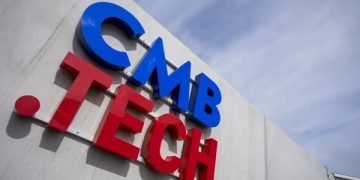OSLO, August 20, 2025 — Two very different shipping companies are tying their futures together. Belgian innovator CMB.TECH, known for its push into hydrogen and ammonia fuels, has agreed to merge with Norway’s Golden Ocean Group, one of the world’s largest dry-bulk carriers. The deal, valued at about $11 billion, will create a new force in global maritime transport.
The structure is simple on paper: Golden Ocean shareholders receive 0.95 shares in CMB.TECH for every share they hold. But the logic goes deeper. Golden Ocean has scale, with dozens of bulk carriers hauling iron ore, coal, and grain on major trade routes. CMB.TECH has the green technology — engines and fuel systems designed to cut carbon emissions at sea. Together, they hope to build a fleet ready for the next decade’s regulatory and commercial pressures.
Investors reacted quickly. Golden Ocean stock rose sharply in early trading, reflecting confidence that the tie-up will boost earnings potential. CMB.TECH moved more cautiously, but analysts in Oslo called the merger “a signal that the energy transition in shipping is moving from talk to reality.”
The move will not go unnoticed in Asia, where Japanese and Chinese operators have been testing their own partnerships to stay competitive. If approved by regulators, the combined company will rank among the world’s largest bulk shipping groups, with the added distinction of being one of the few betting big on alternative fuels.
For seafarers and port operators, the change won’t be visible overnight — the ships will keep carrying coal and grain tomorrow just as they did yesterday. But in boardrooms and shipyards, the calculus has shifted. Shipping’s future is being shaped not just by cargo demand, but by who controls the technology that powers the fleet.























